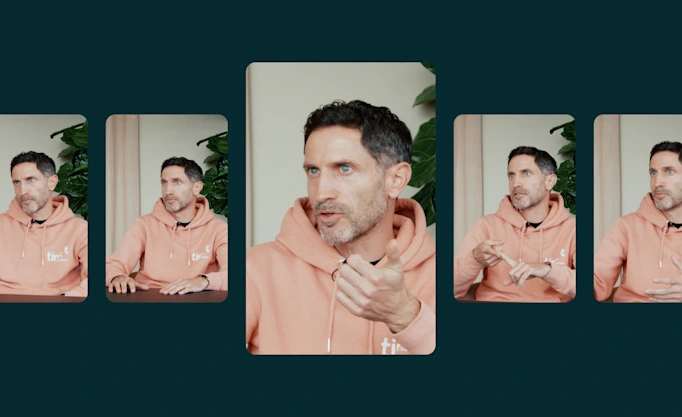The world is watching

The financial services industry in Europe is at a crossroad. Regulators have decided to open the floodgates to competition by introducing the concept of open banking. Although Europe is progressive when it comes to regulations, implementation can be complex. Now the world is watching to see how new regulations affect the financial industry in Europe.
Financial services have never been as exciting as they are today. Open banking regulations have the potential to change the financial services industry as we know it. But implementation relies on collaboration, and around the world, governments and large corporations are waiting to see how it unfolds in Europe before enforcing any radical changes to their own financial markets.
Legislation has been introduced across the EU with the aim to create an environment that fosters innovation and competition within the market. A few technology companies have driven innovation forward, and proved the end user value exists – a stark contrast to the non-competitive market that existed historically.
Following the Data Sharing and Open Data for Banks report in the UK, alongside the EU’s work to update the payment service directive (PSD), the conditions were perfect to see a pseudo-alliance between the UK and the EU form around open banking.
All eyes on Europe
The EU’s PSD2 and the UK’s Open Banking Legislation were both enforced in early 2018. This means that banks and other financial institutions haven’t had a lot of time to prepare themselves.
In addition, some countries are in a state of limbo as they have not communicated to the EU how they will govern PSD2, despite the fact that it has already been enforced. At the same time, the EU does not specify a uniform standard, which means they risk not complying with PSD2’s 'Regulatory Technological Standards' (RTS) when it is enforced in September 2019.
It’s clear that Europe is progressive when it comes to regulations. But how does it look in the rest of the world?

China leads fintech
In China, we see just what fintech can mean for the economy. Tech giants, Tencent and Alibaba, have shown the world how two mobile apps, WeChat Pay and Alipay, can completely transform consumer finance. Ant Financial, one of Alibaba’s subsidiaries, currently stands as the highest valued fintech in history at US$150 billion.
China’s fintech market is the largest in the world and services are not limited to just payments – it has also helped transform traditional markets such as wealth management, credit and lending.
The Chinese government refrained from getting involved until China’s banks recognised that the tech giants were becoming competition due to their dominance in payments and wealth management services.
To protect the sovereignty of the banks in China, the government transitioned to a more proactive regulatory approach. In particular, to limit - or at least control - the size and scope of some fintechs. Since then, the banks, tech giants, and the Chinese government are working closely together.

Making America wait again
Although China’s fintech market is dominated by a handful of contenders, the competitive environment in the US has allowed it to be a leading example when it comes to consumer innovation.
Tech giants like Apple, Amazon, Facebook and Google are challenging the consumer payments market with their apps. These tech giants are looking to form partnerships with other fintechs, such as Paypal and Transferwise, and created a group called Financial Innovation Now (FIN) to pressure regulators into enforcing new standards similar to the ones put in place in Europe.

It’s up to us in Europe
Europe is helping to shape the future of what banking will look like from a regulatory perspective, which could indeed promise greater innovation and competition. Within all the speculation, one thing is clear: open banking is not something any bank or financial institution can do alone.
The success of open banking will require the ecosystem to work together to introduce new business models and leverage fintech innovations. Legislation can open the doors to change, but technological innovation will need to be the driving force, and deliver on the promise of bringing end user value.
Other international developments
Around the world, there has been a confluence of initiatives that have been inspired by the actions taken by the UK and EU.
Canada has recently indicated that it has plans to review the benefits of an open banking regime. The government is eager to give consumers the ability to share their financial data with third parties but has its reservations when it comes to security and privacy.
More in Open banking

2025-06-09
11 min read
The case for “Pay by Bank” as a global term
Thomas Gmelch argues that "Pay by Bank" should be adopted as a standard term for open banking-powered account-to-account payments to reduce confusion, build trust, and boost adoption across the industry.
Read more

2025-06-02
3 min read
Tink joins Visa A2A – what it means for Pay by Bank and VRP
Visa A2A brings an enhanced framework to Pay by Bank and variable recurring payments (VRP) in the UK, and Tink is excited to be one of the first members of this new solution.
Read more

2024-11-19
12 min read
From authentication to authorisation: Navigating the changes with eIDAS 2.0
Discover how the eIDAS 2.0 regulation is set to transform digital identity and payment processes across the EU, promising seamless authentication, enhanced security, and a future where forgotten passwords and cumbersome paperwork are a thing of the past.
Read more
Get started with Tink
Contact our team to learn more about what we can help you build – or create an account to get started right away.
